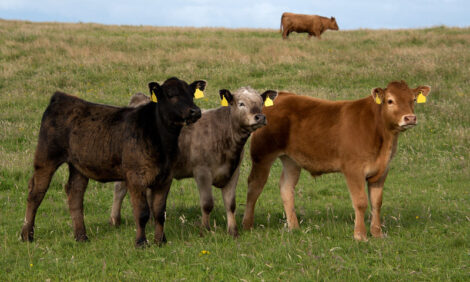



Increased Irrigation Water Increases Maize Yield But Decreases Nutritive Value
Increasing irrigation to maize crops lowers the metabolisable energy contents of the forage, according to research by Dr Rafiq Islam at the University of Sydney.By decreasing crude protein (CP) and water soluble carbohydrate (WSC) in the plant material the value of silage can be reduced despite high yields. This could have major implications for water availability and farm adaptations to irrigation predictions to the Murray-Darling basin - a considerable water course in Australia.
Dr Islam writes that Maize requires ~8 ML water (irrigation plus rainfall) to produce ~25 t DM/ha for silage. In many Australian dairy farms, maize is grown for silage which in turn is used to complement cow’s diets at times when pasture availability is low.
However, despite the high potential forage yield, the problem of growing maize for silage in many key dairy regions is that high water is required to maximise yield.
In the future, water availability in areas such as the major irrigated Murray-Darling basin in Australia may decline by 20?40% due to the 10?20% predicted decline in rainfall (CSIRO, 2008). This decline in water availability may raise the price of water up to ~18%, with an estimated 5% reduction in water use (ABARE, 2010).
Thus, irrigation strategies designed to improve both nutritive value and yield without compromising each other may be more important than emphasising either yield or nutritive value of maize grown for silage.

The aim of this study was to investigate the effects of irrigation water on yield and nutritive value of maize silage. Hybrid forage maize (Pioneer 31H50) was grown at Camden with 6 rates of N fertiliser (0-293 kg/ha) and 4 levels of irrigation water (0, 153, 305 480 mm). Maize was harvested at physiological maturity, chopped at a particle length of ~2.5 cm and ensiled in micro-silos.
Our study showed that increase in irrigation water (0?480mm) increased proportion of grain and consequently total DM yield from 9 to 24 t/ha (Figure 1).
However, despite an increase in proportion of grain, increase in irrigation water also increased NDF content of the whole plant silage, but decreased CP and WSC (Figure 2). Thus, ME contents of silage decreased from 9.82 to 8.81 MJ/kg DM (Figure 1).
The potential implication of this study is that maximizing forage yield of maize crop can adversely affect the nutritive value of silage.

Further ReadingYou can view the full report by clicking here. |
June 2013


